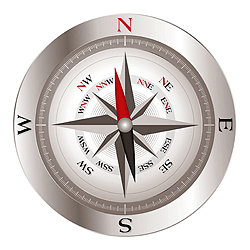
Life moves pretty fast and many of its changes create a special enrollment period. This means you can enroll in or change your health insurance plan outside the open enrollment period.
These may be created by major life events like marriage, having a baby, moving to a new state, job changes and many other causes. Timing is everything with special enrollment periods, which typically last 60 days before or after the date of the qualifying life event, counting the date of the qualifying event as day 1.
Please note that what is acceptable as a qualifying event differs by state, by exchange and even by insurance carrier. Be sure to check with an experienced local health insurance broker in your home state to help you find out what options may be available to you, both off-exchange and on-exchange.
Below you’ll find a fairly comprehensive list of life related qualifying life events:
- Getting married, divorced or legally separated
- Having a baby
- Becoming pregnant
- Adopting a child or placing a child for adoption or foster care
- Moving to another state or moving outside your insurer’s coverage area within the state
- Gaining citizenship or lawfully present status (on-exchange only)
- Change in immigration status (on-exchange only)
- Gaining status as member of an Indian tribe
- Current health insurance is ending involuntarily (even if offered an alternate plan)
- If enrolled in an exchange plan, having a change in income or household status that affects eligibility for premium tax credits or cost-sharing reductions
- Losing student health coverage when you graduate
- “Aging off” a parent’s plan when you turn 26
- Exhaustion of COBRA coverage
- Losing eligibility for Medicaid or the Children’s Health Insurance Program
- Leaving incarceration
- See other job related qualifying events
There are also some more rare circumstances that could create a special enrollment period, such as:
- Serious medical conditions or a natural disaster kept you from enrolling, such as an unexpected hospitalization or temporary cognitive disability
- Natural disaster, such as an earthquake, massive flooding, or hurricane
- If you applied for Medicaid through your state, or were sent to Medicaid from the Marketplace, but you weren’t eligible for Medicaid.
- System outage at the exchange or government agency or other system errors that kept you from enrolling, as determined by the Centers for Medicare & Medicaid Services
- Your application was rejected by the insurance company’s system because of errors in reading the data, or some of the data was missing or inaccurate.
- Your application was stopped due to specific error messages. For example, you received a “data sources down” error message or another error message that didn’t allow you to enroll.
- You’re working with a caseworker on an enrollment issue that didn’t get resolved before January 12th.
- You’re a victim of domestic abuse and weren’t previously allowed to enroll and receive advance payments of the premium tax credit separately from your spouse.
- Misconduct by a non-exchange enrollment personnel (like an insurance company, navigator, certified application counselor, or agent or broker) resulted in you not getting enrolled in a plan, being enrolled in the wrong plan or not getting the premium tax credit or cost-sharing reduction you were eligible for.
Be sure to work with a local health insurance broker to help you review both your on and off-exchange insurance plan options. They can help you determine which carriers will accept your qualifying event and which has the best value on health insurance. There is no extra charge for their professional services. Colorado consumers please click here.